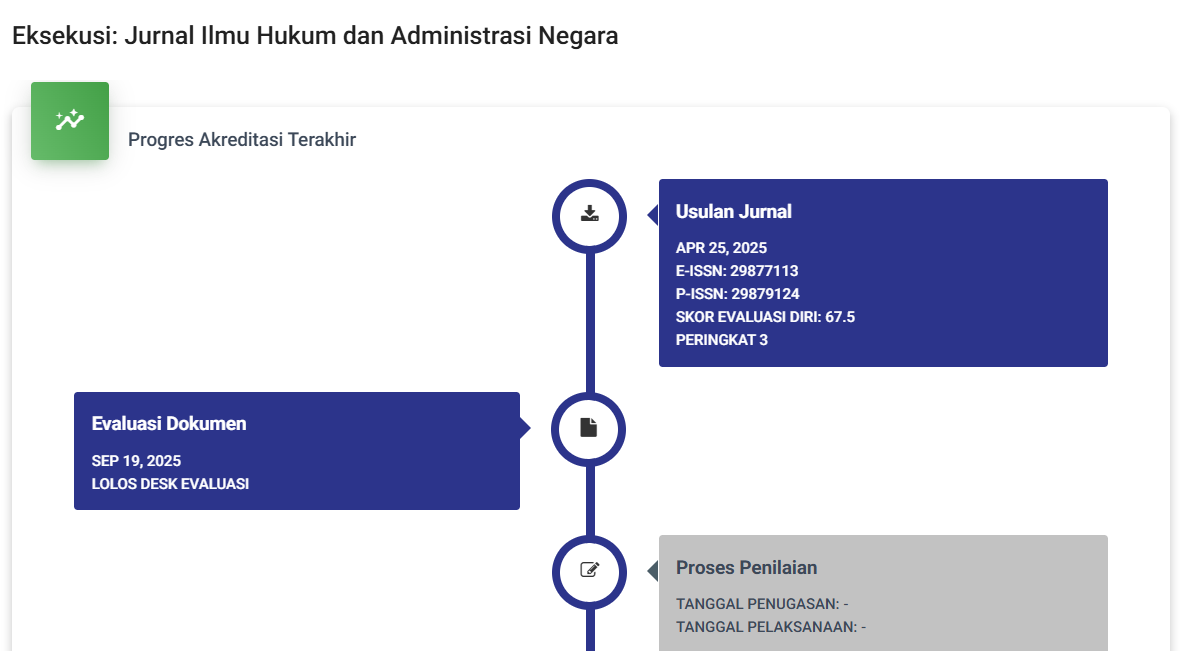Eksistensi Pengadilan Pajak Dalam Independensi Peradilan Penyelesaian Sengketa Pajak Ditinjau Dari Putusan Mahkamah Konstitusi Nomor 26/PUU-XII/2023
DOI:
https://doi.org/10.55606/eksekusi.v1i3.453Keywords:
Constitutional Court Decision, Tax Court, Judicial Existence, IndependenceAbstract
The existence of these judicial institutions becomes very important because it can be ascertained without the existence of judicial institutions that are given the authority to carry out law enforcement, then the law will not have much meaning in society. One of the judicial institutions tasked with carrying out law enforcement is the Tax Court Institute. So far, although the organization, administration and finance coaching is carried out by the Ministry of Finance, which incidentally is in charge of the DGT, does not reduce the freedom of the Tax Court and the independence of the judges in examining and deciding on existing tax disputes. Law enforcement in this context is the law in the field of taxation relating to the enforcement of the rights and obligations of the state and people in order to create the benefits, justice, and legal certainty for the parties. Then, through the decision of the Constitutional Court Number 26/PUU-XXI/2023 which mandates that the organizational, administrative, and finance foster of the Tax Court must be transferred to the Supreme Court, the provisions contained in the Tax Court Law regarding organizational development and technical guidance from the Supreme Court are also Administration and Finance by the Ministry of Finance does not describe the independence and independence of the judicial institution as mandated by Article 24 paragraph (1) of the 1945 Constitution of the Republic of Indonesia and the Law on Judiciary. As a result, by placing a tax court in the "two -roof" executive power and judicial power it is feared that it can lead to non -resistance to the resolution of tax disputes by the tax court judge.
References
Afdol dan Setjoatmadja, S. (2015). Kedudukan, Eksistensi dan Independensi Pengadilan Pajak dalam Kekuasaan Kehakiman di Indonesia. Jurnal Hukum Bisnis, 1(1).
Arvie J, Hikmah, Fadhilatul dan Aditya, A. (2019). Perpajakan Optimal dalam Perspektif Hukum Pajak Berfalsafah Pancasila. Jurnal Magister Hukum Udayana, 8(3).
Bravesta, R. dan H. S. (2017). Kedudukan Pengadilan Pajak dalam Sistem Peradilan di Indonesia. Mimbar Keadilan Jurnal Ilmu Hukum, 6(2).
Enggarani, N. S. (2018). Independensi Peradilan dan Negara Hukum. Jurnal Law and Justice, 3(2).
Hasan Basri, M. M. (2022). Kedudukan Pengadilan Pajak Dalam Sistem Peradilan Di Indonesia. JURNAL HUKUM Dan KENOTARIATAN, 6(3).
Ispriyarso, B. (2019). Penyatuan Pembinaan Pengadilan Pajak. Administrative Law and Governance Journal, 2(4).
Juli, Wan dan Sariono, J. N. (2014). Hak dan Kewajiban Wajib Pajak Dalam Penyelesaian Sengketa Perpajakan di Pengadilan Pajak. Jurnal Perspektif, 12(3).
Peter Mahmud Marzuki. (2016). Penelitian Hukum (p. 134). Prenada Media Group.
Ratih Wedhasari, I. W. P. (2021). Independensi pengadilan pajak dalam Sistem kekuasaan kehakiman di indonesia. Jurnal Kertha Negara, 9(3), 154–163.
Subadi dan Toersina, T. O. (2018). Perkembangan Konsep atau Pemikiran Teoritik Tentang Diskresi Berbasis Percepatan Investasi di Daerah. Jurnal Mimbar Hukum, 30(1).
Sudiro, A. (2016). Akuntabilitas Mahkamah Agung Quo Vadis Mahkamah Agung (Catatan Singkat Mahkamah Agung Sebagai Pemberi Pelayanan Hukum Yang Profesional dan Berkeadilan). RajaGrafindo Persada.
Suhardi, I. (2016). Penyatuan Hukum Pajak Formal Dalam Sistem Hukum Pajak Nasional. Jurnal Yuridika, 31(1).
Suherman, A. (2019). Implementasi Independensi Hakim Dalam Pelaksanaan Kekuasaan Kehakiman. SIGn Jurnal Hukum, 1(1).
Sutrisno, D. (2016). Hakikat Sengketa Pajak Karakteristik Pengadilan Pajak Fungsi Pengadilan Pajak. PT. Kencana.
Triningsih, A. (2017). Politik Hukum Pendidikan Nasional: Analisis Politik Hukum dalam Masa Reformasi. Jurnal Konstitusi, 14(2).








